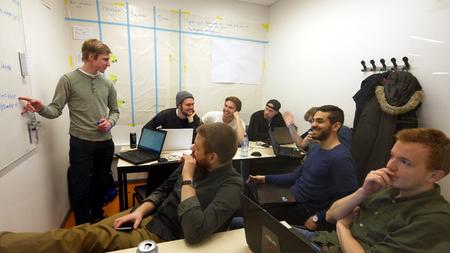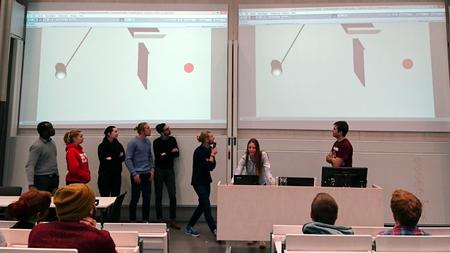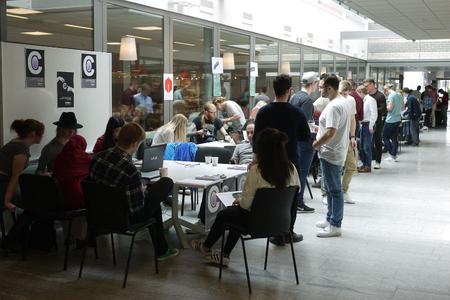Du är inte inloggad på KTH så innehållet är inte anpassat efter dina val.
Från och med den 1 juni 2025 upphör möjligheten att redigera innehåll i kurswebben och studenter slutar bli inlagda. Redan existerande material kvarstår.
Läs mer här: Kurswebbens solnedgång den första juni
Link to Canvas pages for 2025:
https://canvas.kth.se/courses/53175
This course helps you towards realizing your true potential as a developer. To achieve this, you and your team will conceive, design, and implement a product in the area of Information and Communication Technology (ICT). The course runs in three phases.
The first phase of the course is preparation. You read up on the project methodology we use (Scrum), and the version management tool we use (Git). Also during the preparation phase, teams are formed, and the teams suggest and discuss product-ideas with the teachers. The teachers approves one of the team's product ideas.
The second phase is project work. Your team will design and implement the product in three so-called sprints. Each sprint is five days long, but only Wednesdays, Thursdays and Fridays go in a sprint. Other days are for your other course.
Wednesdays, Thursdays and Fridays during the sprints, everyone works full office-hours: from 8:00 to 17:00, with a lunch hour from 12:00 to 13:00. At the end of each sprint, your team reflects on which project-methods worked well, and which didn't, in order to improve the next sprint.
The third phase is for final reflection. The product (or prototype) that your team developed is now ready. All products are shown to the public at a project expo. You also submit a written individual reflection, which documents the experience you gained in the course.
We use Henrik Kniberg: Scrum and XP from the trenches, 2nd edition, available at
http://www.infoq.com/minibooks/scrum-xp-from-the-trenches-2
Downloading requires a zero-cost registration.

Second Phase, Day 1. Starting up a project requires planning before coding, and design before prototyping.

Second Phase, Day 5. Teams work one sprint at a time, with a demo at the end of each sprint.

End of Second Phase. All products are shown to the public at a project expo.
Completed courses in all of the following fields:
Active participation in a course offering where the final examination is not yet reported in LADOK is considered equivalent to completion of the course.
Registering for a course is counted as active participation.
The term 'final examination' encompasses both the regular examination and the first re-examination.